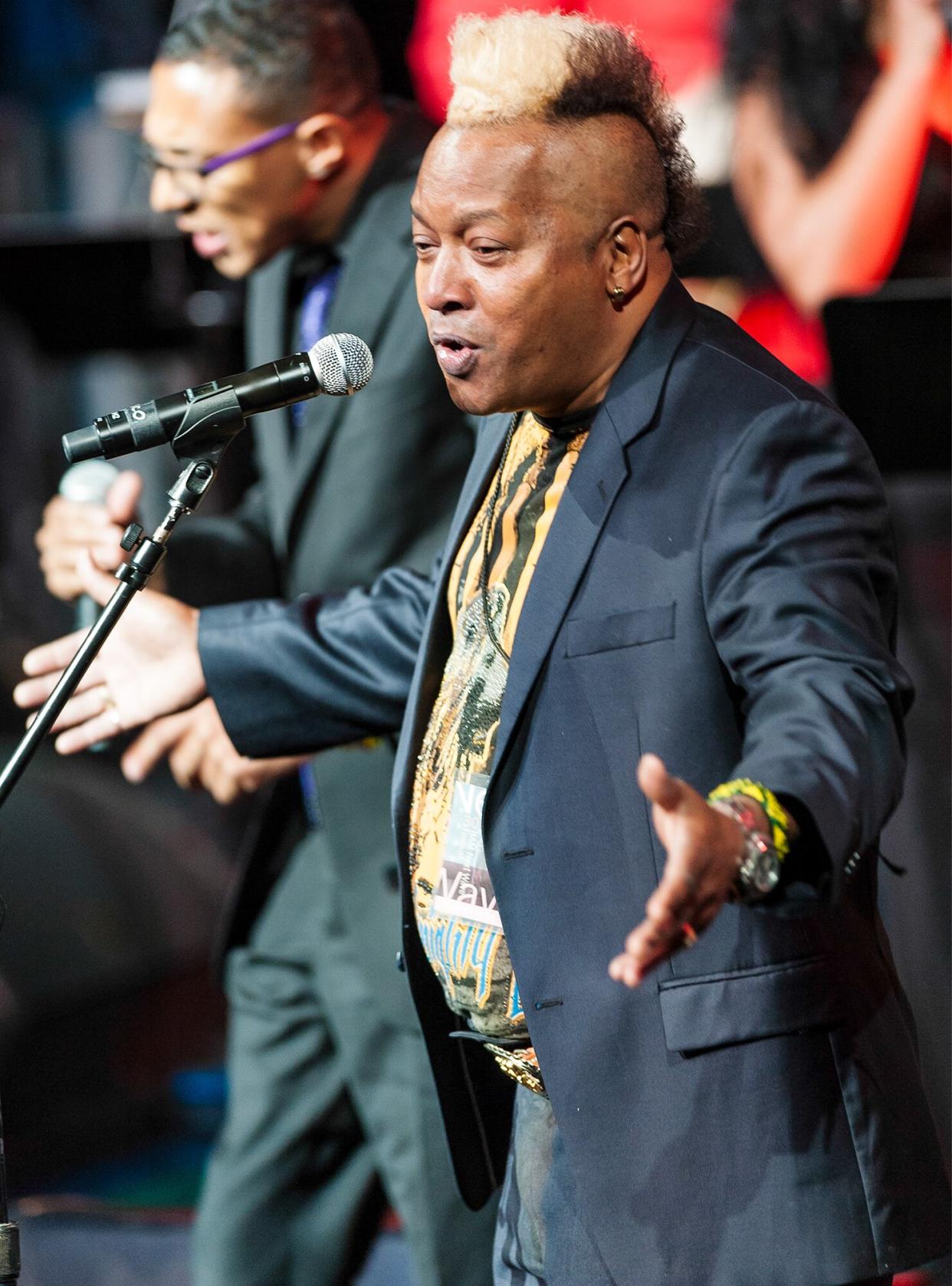Cuban Bandleader and Timba Pioneer José Luis Cortés Dead at 70 After 'Hemorrhagic Encephalic Accident'

Jack Vartoogian/Getty José Luis Cortés
José Luis "El Tosco" Cortés, controversial famed Cuban bandleader, flutist, and pioneer of the timba genre, has died. He was 70.
The musician, who founded the musical group NG La Banda and performed with bands Irakere and Los Van Van, died on April 18 in Havana after "a hemorrhagic encephalic accident," according to the Instituto Cubano de la Música's Facebook page.
"Born in the neighborhood of El Condado, in the city of Santa Clara, he graduated from the flute specialty at the National School of Art and stood out, from a very young age, for his virtuosity as an instrumentalist and orchestrator and for his leadership capacity among the union colleagues," read the organization's note, translated from Spanish, posted the day of Cortés' death.
Prior to founding NG La Banda, Cortés performed in the Cuban songo band Los Van Van and composed music for the 1979 collection Los Van Van v. V (Areíto LD-378). The flutist was also involved in the Granny-winning Afro-Cuban jazz supergroup Irakere and wrote one of their most popular songs, 1985's "Rucu rucu a Santa Clara."
Never miss a story — sign up for PEOPLE's free daily newsletter to stay up-to-date on the best of what PEOPLE has to offer, from juicy celebrity news to compelling human interest stories.
NG La Banda was formed in 1988 and is credited with launching the popular Cuban dance genre of timba, a term coined by Cortés. "The best way to understand his style is that he brought to dance music the complexity of big-band jazz," author and emeritus professor of Chicano and Latin studies at the University of California, Irvine, Raul A. Fernandez, told The New York Times.
In a 1988 interview with The Miami Herald, Cortés, known as "El Tosco" aka "Rude Boy" for his sexual lyrics and confident, unhinged stage presence, spoke about public reaction to the timba genre.
"The intellectuals say that timba is crap," he told the outlet. "But this is a racist concept. Cuban popular music has always been the music of the people, of the poor barrios, where there are very few whites. This is the music that comes from below, that makes people want to dance. But just because people dance to it doesn't mean it's not as serious as any other serious music."
"Timba is not your father's, or your grandfather's, Cuban music; not the sweet traditional sounds of the international hit Buena Vista Social Club," Cortés explained. "Timba is the sound of Cuba now, a rhythmically dense, relentlessly energetic music played by highly skilled musicians for a demanding dance-floor audience, with lyrics that draw from and become part of the language of the streets."
Elsewhere in the tribute posted by the Instituto Cubano de la Música, Cortés' legacy was detailed. "Considered one of the most important figures in contemporary Cuban music, he bequeathed to the new generations, whom he always supported unconditionally, an example of professional rigor and a long and fruitful artistic career, always in defense of the most authentic values of Cuban music," continued the note.
Want to get the biggest stories from PEOPLE every weekday? Subscribe to our new podcast, PEOPLE Every Day, to get the essential celebrity, entertainment and human interest news stories Monday through Friday.
Throughout his career, Cortés received several honors including "the National Music Award in 2017," per the Instituto Cubano de la Música, as well as "the Raúl Gómez García Medal, the Distinction for National Culture, the Replica of the Máximo Gómez Machete and the Key to the City of Santa Clara."
In 2019, Cortés was accused of sexual assault and rape in 2019 by NG La Banda member Dianelys Alfonso, known as the "Goddess of Cuba" for her vibrant style and stage presence. According to a report published by The Associated Press in July 2019, Cortés had not publicly commented on the allegations, but Alfonso, 41, had received support from fans in her native country, who considered her a pioneer of the #MeToo movement.
"I look at everything happening online and I'm really stunned," she told the outlet at the time in response to messages she received, which accused her of lying. "I can't really understand what's happening online. I'm just trying to keep getting professional psychological help to deal with everything that's come at me for having told the truth."
The Instituto Cubano de la Música's tribute revealed Cortés' family chose to veil the musician's body in "an intimate ceremony" before an immediate burial. According to The New York Times, no information is currently known about the icon's survivors.

